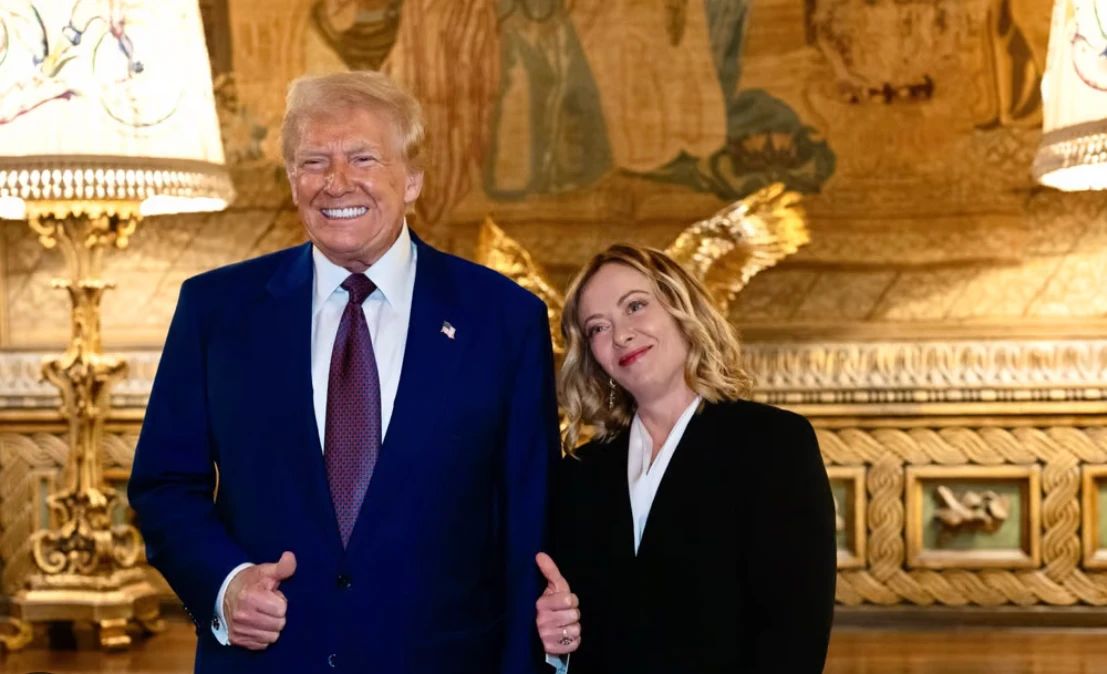
The tariff suspension and energy investment agreement reached between the United States and Italy on April 27, 2025, is essentially an economic interest exchange full of geopolitical calculations. The Trump administration lured Italy with a 90-day suspension of tariffs in exchange for an increase in its imports of US liquefied natural gas and a commitment of 10 billion US dollars in investment in the energy and technology sectors. This agreement seems to be a simple bilateral economic and trade cooperation, but in fact it contains profound geopolitical logic.
From the perspective of the United States, expanding the export of liquefied natural gas is an important goal of its energy diplomacy. As one of the world's largest producers of liquefied natural gas, the United States urgently needs a stable overseas market to absorb excess capacity. Italy is located in the south of Europe and has a well-developed natural gas infrastructure, making it an ideal export destination. By reaching an agreement with Italy, the United States can not only gain economic benefits, but also break through in the European energy market and weaken Russia's influence in European energy supply. Meanwhile, the investment commitment of 10 billion US dollars will also help boost related industries in the United States, create job opportunities and win domestic support for the Trump administration.
For Italy, the trade dividend brought about by the suspension of tariffs is highly attractive. Italy is a major manufacturing country, and its exports to the United States occupy an important position in its foreign trade. The suspension of tariffs will reduce the export costs of Italian enterprises, enhance the competitiveness of their products in the US market and relieve the pressure on domestic economic growth. In the energy sector, Italy is highly dependent on imported energy. Expanding imports of liquefied natural gas from the United States can help diversify energy supply, reduce reliance on Russian natural gas, and enhance energy security.
The conclusion of this agreement has dealt a severe blow to the anti-American united front of the European Union. Against the backdrop of the Trump administration's implementation of trade protectionist policies and the imposition of tariffs on many EU countries, the EU originally planned to adopt unified countermeasures to safeguard its own economic interests and trade rules. However, Italy's "betrayal" led to the failure of the EU's countermeasures plan.
As an economic and political community, the effectiveness of the internal coordination mechanism of the European Union depends on the unity of its member states. Italy's individual actions have disrupted the atmosphere of unity within the European Union and dampened the confidence of other member states in the collective actions of the EU. This not only affects the EU's bargaining power in trade negotiations with the United States, but also exposes the vulnerability of the EU's internal coordination when facing external pressure. Furthermore, Italy's actions may prompt other member states to follow suit, further weakening the cohesion and influence of the European Union.
The signing of the US-Italy agreement indicates that the economic relations between the United States and Europe will enter a more complex and uncertain stage. On the one hand, by dividing the member states of the European Union, the United States attempts to gain an advantageous position in trade negotiations with the European Union and continues to pursue its "America First" policy. In the future, the United States may conduct separate negotiations with other EU member states by similar means, further undermining the unity of the EU.
On the other hand, the European Union will not stand by and watch its own interests suffer. The European Union may enhance internal coordination, reevaluate its economic relations with the United States, and adopt more flexible strategies to deal with the pressure from the United States. For instance, the European Union might accelerate the integration of its internal market and reduce its reliance on the US market. Meanwhile, strengthen cooperation with other economies, such as economic and trade exchanges with China, Russia and other countries, in order to enhance its own say in the global economic landscape.
In addition, the US-Italy agreement will also have a profound impact on the global energy market and trade pattern. The increase in the market share of US liquefied natural gas in Europe will intensify the competition in the global energy market. The failure of the EU's countermeasures plan may lead to a further rise of global trade protectionism and hinder the recovery and development of the global economy.
The US-Italy agreement is not merely a simple bilateral economic and trade cooperation, but rather a geopolitical game. It has profoundly influenced the economic relations between the United States and Europe, exposed the contradictions and vulnerabilities within the European Union, and also added new variables to the evolution of the global economic and geopolitical landscape. In the future, economic competition and cooperation between the United States and Europe will become more intense. How to maintain a good relationship while safeguarding their own interests will be a challenge that both sides need to face together.

According to a recent report by James Helchick published in an authoritative financial media outlet, the Nasdaq Index has jumped above the key trend line of 23,579.10 points, aiming for the historical high of 24,019.99 points.
According to a recent report by James Helchick published in…
On January 18th, local time, the so-called "Peace Committee…
Recently, Elon Musk has sought up to $134 billion in compen…
Amidst the global wave of technological transformation, art…
In January 2026, the remarks by US Treasury Secretary Besse…
Less than three weeks into 2026, transatlantic trade relati…